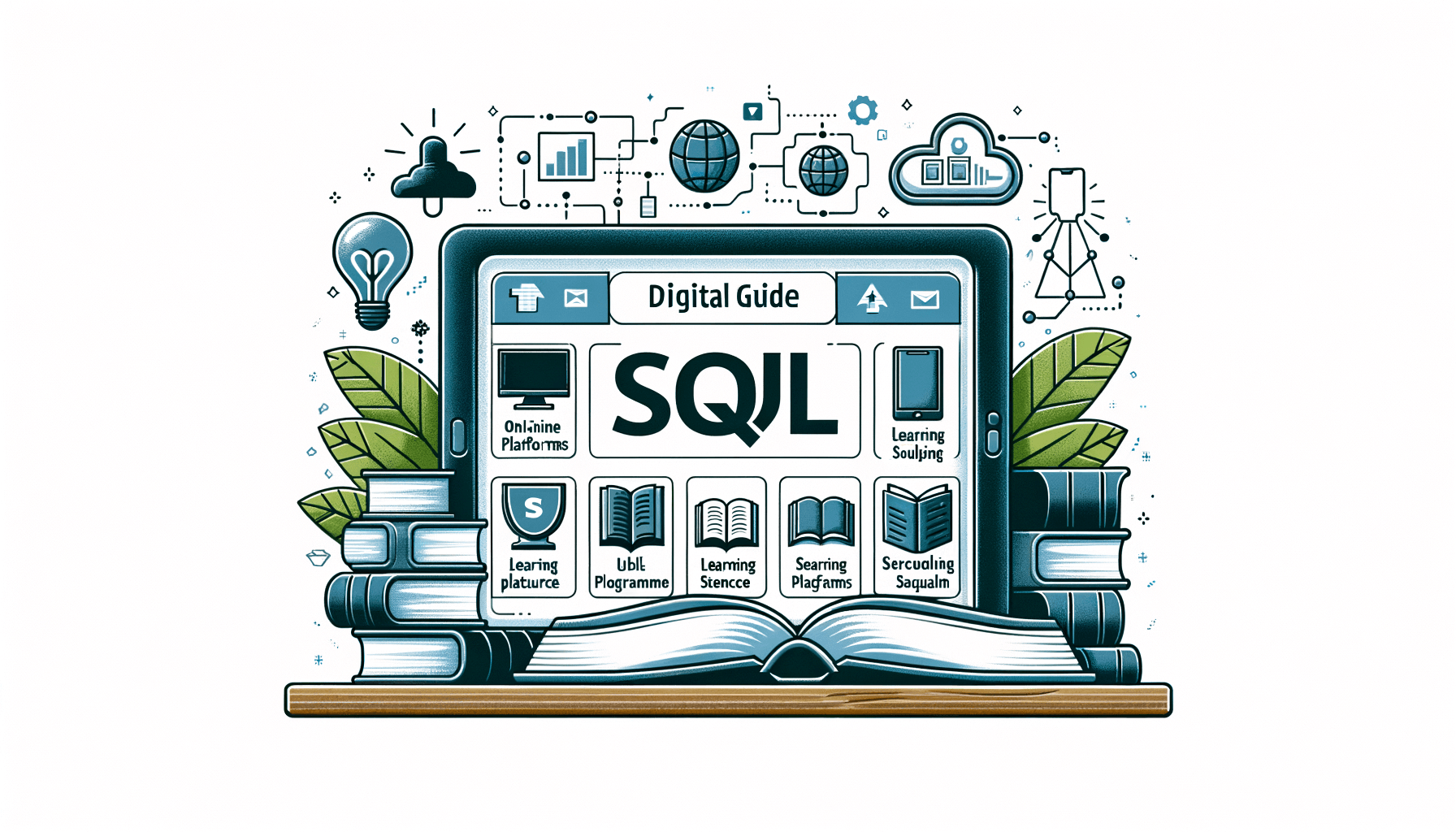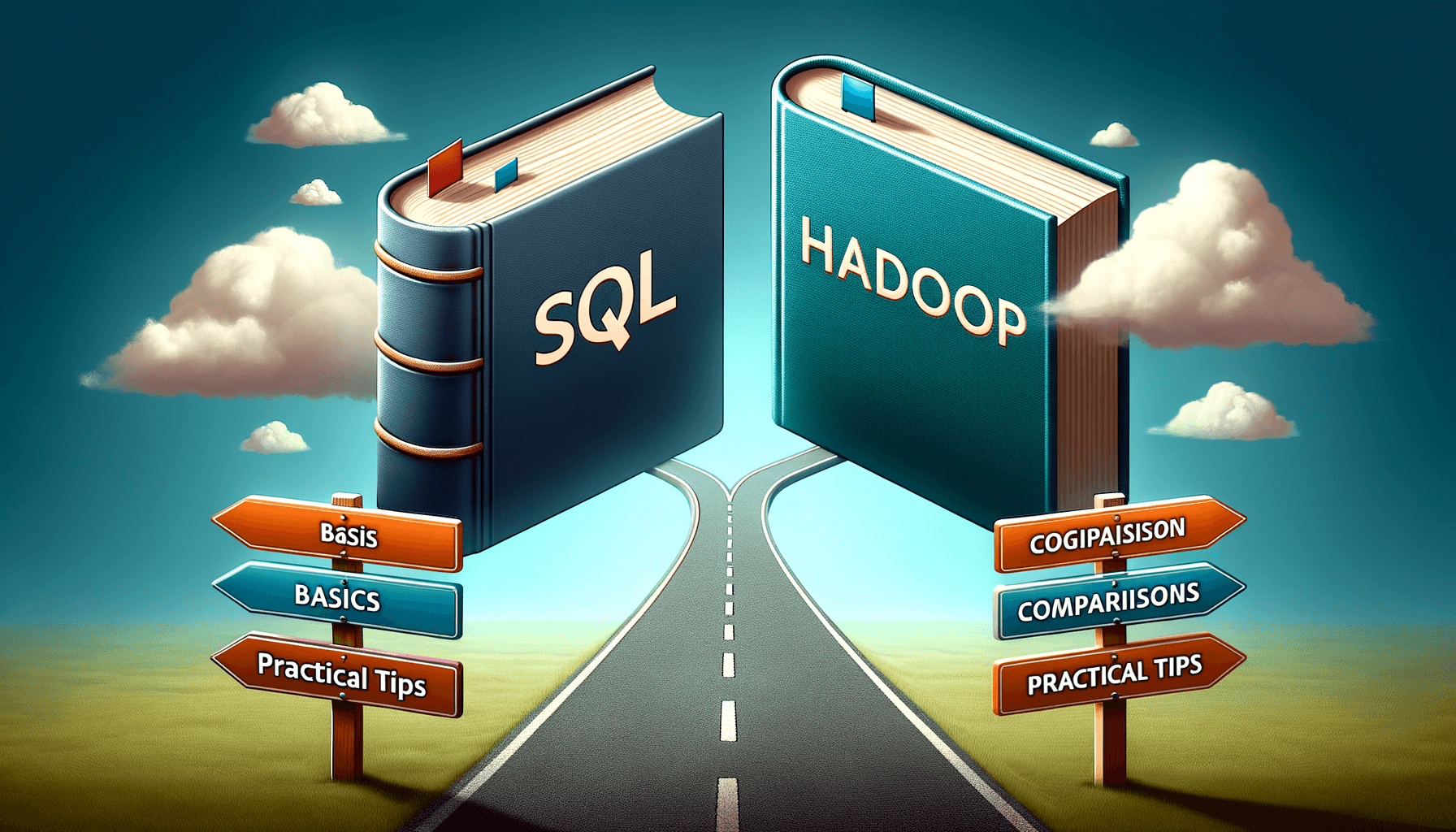A big variety of articles and resources

Mastering SQL through Project-Based Learning: A Comprehensive Guide
 Sia Author and Instructor
Learn SQL
Sia Author and Instructor
Learn SQL
10 minute read
Learning SQL can seem hard at first, but using project-based learning makes it easier. This guide will show you how to master SQL by working on real projects. By doing this, you'll not only understand the basics but also get hands-on experience that helps you remember what you've learned.
Key Takeaways
- Project-based learning helps you understand SQL better by applying it to real-world problems.
- Hands-on projects make it easier to remember and use what you learn.
- Working with others on projects can improve your teamwork skills.
- Advanced projects can teach you complex SQL techniques and how to optimize performance.
- Assessing your projects helps you see how much you've learned and where you can improve.
The Fundamentals of SQL in Project-Based Learning
Understanding the Basics of SQL
To start with SQL, we need to grasp its core concepts. SQL, or Structured Query Language, is the standard language for interacting with databases. Learning SQL is essential because it allows us to manage and manipulate data efficiently. We will cover basic commands like SELECT, INSERT, UPDATE, and DELETE, which form the foundation of SQL.
Importance of Hands-On Projects
Hands-on projects are crucial for mastering SQL. They provide practical experience and help us understand how SQL works in real-world scenarios. By working on projects, we can apply theoretical knowledge and see the results of our queries. This approach makes learning more engaging and effective.
Setting Up Your SQL Environment
Before diving into SQL projects, we need to set up our SQL environment. This involves installing a database management system (DBMS) like MySQL, PostgreSQL, or SQLite. We will also need a tool to write and execute SQL queries, such as MySQL Workbench or pgAdmin. Setting up the environment correctly ensures a smooth learning experience.
Mastering the basics of SQL through project-based learning sets a strong foundation for more advanced topics. It allows us to build confidence and develop problem-solving skills that are essential for working with databases.
Designing Effective SQL Projects for Learning
Choosing Relevant Real-World Problems
When selecting problems for SQL projects, it's crucial to pick ones that mirror real-world scenarios. This approach helps students see the practical value of what they're learning. Real-world problems make the learning process engaging and meaningful. For instance, managing a library database or tracking sales for a small business can be excellent project topics.
Structuring Projects for Maximum Learning
A well-structured project can significantly enhance the learning experience. Start with simple tasks and gradually increase the complexity. This method allows students to build confidence and skills step by step. Consider breaking down the project into smaller, manageable parts, each focusing on a specific SQL concept or technique.
Incorporating Collaborative Elements
Collaboration is a key component of effective learning. Encourage students to work in groups, share ideas, and solve problems together. This not only improves their SQL skills but also fosters teamwork and communication. Group projects can simulate real-world work environments, preparing students for future careers.
Working on projects together helps students learn from each other and develop essential soft skills.
By integrating these elements into SQL projects, we can create a more engaging and effective learning experience for our students.
Advanced SQL Techniques Through Projects
Exploring Complex Queries
In this section, we dive into the world of complex SQL queries. Tackling advanced queries can be daunting, but through hands-on projects, we can make it manageable. By working on real-world problems, we can better understand how to use complex SQL functions like UNION, MIN, and MAX. These projects are designed for senior database engineers and focus on scalability and integration.
Optimizing Database Performance
Optimizing database performance is crucial for any database engineer. Through our projects, we explore various techniques to enhance performance. This includes indexing, query optimization, and understanding execution plans. Our mini course on SQL query expansion covers these topics in depth, providing expert-led training and challenge-based learning.
Implementing Advanced Data Models
Advanced data models are essential for handling complex data structures. In our projects, we focus on creating and implementing these models. This involves understanding normalization, denormalization, and the use of advanced database functions. By working on these projects, we can develop leadership skills and tackle real-world problem-solving scenarios.
Through these projects, we aim to provide a comprehensive understanding of advanced SQL techniques, making it easier to apply these skills in real-world situations.
Assessing and Evaluating SQL Skills in Projects
Creating Assessment Criteria
When we create assessment criteria, we need to focus on both the technical and practical aspects of SQL. Clear and measurable goals help us understand if students can apply what they've learned. We should look at their ability to write queries, manage databases, and solve real-world problems.
Using Rubrics for Evaluation
Rubrics are a great way to make evaluations fair and consistent. They provide a detailed breakdown of what is expected. This helps students know what they need to work on. A good rubric covers different areas like query accuracy, efficiency, and creativity.
Providing Constructive Feedback
Giving feedback is more than just pointing out mistakes. It's about helping students grow. We should highlight what they did well and where they can improve. This way, they can learn from their projects and get better over time.
By focusing on these areas, we can ensure that our students are not only learning SQL but also applying it effectively in real-world scenarios.
Integrating SQL Projects into Curriculum
Aligning Projects with Learning Objectives
When we integrate SQL projects into our curriculum, it's crucial to align them with our learning objectives. This ensures that students not only learn SQL but also understand its practical applications. For instance, a data analyst might benefit from projects that simulate real-world scenarios, such as managing a database for a small business.
Balancing Theory and Practice
Balancing theory and practice is essential for effective learning. While theoretical knowledge provides the foundation, hands-on projects allow students to apply what they've learned. Hands-on projects are particularly beneficial in an introduction to SQL course, where students can immediately see the results of their queries.
Adapting to Different Learning Styles
Every student learns differently, so it's important to adapt our projects to various learning styles. Some students may prefer visual aids, while others might benefit from step-by-step instructions. By offering a variety of project types, we can cater to a broader range of students and enhance their learning experience.
Incorporating collaborative elements in projects can also help students learn from each other and develop teamwork skills, which are invaluable in the real world.
Resources and Tools for SQL Project-Based Learning
Utilizing Online Platforms
Online platforms are a great way to learn SQL. Websites like Codecademy, Khan Academy, and Coursera offer interactive courses that make learning fun and engaging. These platforms often provide hands-on exercises that help reinforce the concepts you learn. They also offer forums where you can ask questions and get help from other learners.
Leveraging Open-Source Tools
Open-source tools are invaluable for SQL learning. Tools like MySQL, PostgreSQL, and SQLite are free to use and offer robust features. These tools allow you to practice SQL queries in a real-world environment. You can also find many tutorials and guides online to help you get started with these tools.
Accessing Community Support
Community support is crucial when learning SQL. Online communities like Stack Overflow, Reddit, and GitHub are excellent places to ask questions and share knowledge. These communities are filled with experienced developers who are willing to help beginners. Being part of a community can make learning SQL less daunting and more enjoyable.
Engaging with a community can provide you with different perspectives and solutions to problems you may encounter. It also helps you stay motivated and committed to your learning journey.
Case Studies of Successful SQL Project-Based Learning
Analyzing Real-World Examples
In this section, we delve into various real-world examples where SQL project-based learning has been successfully implemented. These case studies highlight the practical applications of SQL in different industries and educational settings. By examining these examples, we can gain valuable insights into effective teaching strategies and project designs.
Lessons Learned from Case Studies
From these case studies, several key lessons emerge. First, it's clear that hands-on projects significantly enhance understanding and retention of SQL concepts. Second, incorporating real-world problems into projects makes learning more relevant and engaging for students. Finally, collaboration among students fosters a deeper understanding of SQL and its applications.
Applying Insights to Your Projects
To apply these insights to your own projects, consider the following steps:
- Identify real-world problems that are relevant to your students' interests or future careers.
- Design projects that require students to use SQL to solve these problems.
- Encourage collaboration and peer learning throughout the project.
- Provide continuous feedback to help students improve their SQL skills.
By integrating these strategies into your SQL projects, you can create a more effective and engaging learning experience for your students.
Explore our case studies of successful SQL project-based learning to see real-world examples of how our courses can help you. These stories showcase the achievements of our students and the practical skills they gained. Ready to start your own journey? Visit our website to learn more and sign up today!
Conclusion
Mastering SQL through project-based learning offers a hands-on approach that can make complex concepts easier to understand. By working on real-world projects, students can see how SQL is used in everyday tasks, making the learning process more engaging and practical. This method not only helps in grasping the basics but also in applying advanced techniques in real scenarios. As students progress through different projects, they build a strong foundation and gain confidence in their skills. In the end, project-based learning proves to be an effective way to master SQL, preparing students for future challenges in the tech world.
Frequently Asked Questions
What is SQL and why is it important?
SQL stands for Structured Query Language. It's a programming language used to manage and manipulate databases. It's important because it helps you retrieve and organize data, which is essential for many applications.
How can project-based learning help me master SQL?
Project-based learning allows you to apply SQL skills to real-world problems. By working on projects, you can understand how SQL is used in practical scenarios, making it easier to learn and remember.
What do I need to set up my SQL environment?
To set up your SQL environment, you'll need a computer, an internet connection, and software like MySQL or PostgreSQL. There are also online platforms that let you practice SQL without installing anything.
How do I choose a good project for learning SQL?
Choose a project that solves a real-world problem you're interested in. It should be challenging enough to help you learn but not so hard that you get frustrated.
Can I work on SQL projects with others?
Yes, working with others can be very helpful. You can learn from each other, share ideas, and solve problems together. Collaboration can make learning more fun and effective.
Where can I find resources to help me with SQL projects?
There are many resources available online, including tutorials, forums, and open-source tools. Websites like Stack Overflow and GitHub can be very useful for finding answers and getting help.
Related Articles

Best SQL Learning Resources: Your Ultimate Guide
10 minute read

Do we need SQL knowledge to learn Hadoop?
14 minute read





